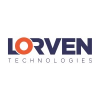This role in the Global Data Office will report to the Head of Enterprise Data Architecture, to specialize in four in-demand areas : taxonomy development and management, graph schema design and best practices, semantic AI techniques to prepare our data for AI technologies and tools, and data governance and compliance.
The experience expected from applicants, as well as additional skills and qualifications needed for this job are listed below.
In this role you will act as a subject matter expert that will be a key contributor to enable Equifax to further leverage our transformation into the cloud, to facilitate the creation of advanced and differentiated offerings.
Equifax has a hybrid work schedule that allows for 2 days of remote work (Monday and Friday), with 3 days onsite (Tuesday, Wednesday, Thursday) every week.
This role will work the required onsite days at our Equifax office in Alpharetta, GA.
Sponsorship is not available for this position. This is a direct-hire role - not open to C2C or vendors.
What you’ll do :
- Taxonomy Development and Management :
- Design and build domain specific taxonomies and ontologies.
- Maintain and update taxonomies as business needs evolve.
- Utilize taxonomies to improve search, information retrieval, and knowledge management.
- Graph Schema Design and Implementation :
- Develop and implement graph data models that accurately represent the complex relationships between entities in the financial domain.
- Work with database administrators and developers to ensure optimal performance and scalability of the graph database.
- Semantic AI Integration :
- Leverage AI technologies such as natural language processing (NLP) and machine learning (ML) to enhance the capabilities of taxonomies and graph data models.
- Develop and implement algorithms for semantic search, entity recognition, and relationship extraction.
- Support the design and implementation of data models that enable the acquisition, production, storage, access, analysis, and delivery of data to meet business objectives, acting as a bridge between the data requirements of business and analytic processes, and the physical implementation of that data in technology infrastructure.
- Align components of the data environment with the enterprise data strategy by understanding data structures and flows and how they relate to business use.
- Work with IT to align underlying physical sources with the specified data architecture.
- Support management of the data architecture through various governance processes.
- Support the design and evolution of the architecture of our data asset to drive value and NPIs.
What experience you need :
- BS degree in a STEM major or equivalent discipline; Master’s Degree strongly preferred.
- 5 - 7 years of data analysis and modeling experience, particularly applied to common and specific business uses.
- Cloud and other relevant technical certifications strongly preferred.
- Familiarity with cloud and on-prem technologies, structured and unstructured data, streaming and reposed data.
- Experience with data modeling techniques and tools.
- Experience in analytics and AI solutions such as NLP and ML.
- Strong understanding of semantic web technologies, taxonomies, ontologies, and graph databases.
- Knowledge of Python programming language.
- Experience with a data visualization and reporting tool.
- Experience working closely with business and analytics teams to understand their needs (e.g., design thinking sessions, business requirements, agile methods, etc.
maintain ongoing engagement through development, rollout, and improvement cycles.
- Hands-on Technical capabilities such as - designing and developing relational and non-relational data models.
- Excellent communication and collaboration skills, with proven ability to work independently or as part of a team with strong attention to detail.
What could set you apart :
- Technical Advising / Consulting - Experience modeling entities, relationships, attributes, and abstract data building blocks for a given business case, considering both specific database / physical design as well as the logical and conceptual design required for business use.
- Domain Knowledge : A solid understanding of financial products, markets, and regulations is crucial for effective communication and collaboration with business stakeholders.
- Data Security and Privacy : The financial services industry is subject to strict data security and privacy regulations.
- Risk Management : Understanding of risk management principles and how data can be used to identify and mitigate risks is important in the financial sector.
J-18808-Ljbffr







